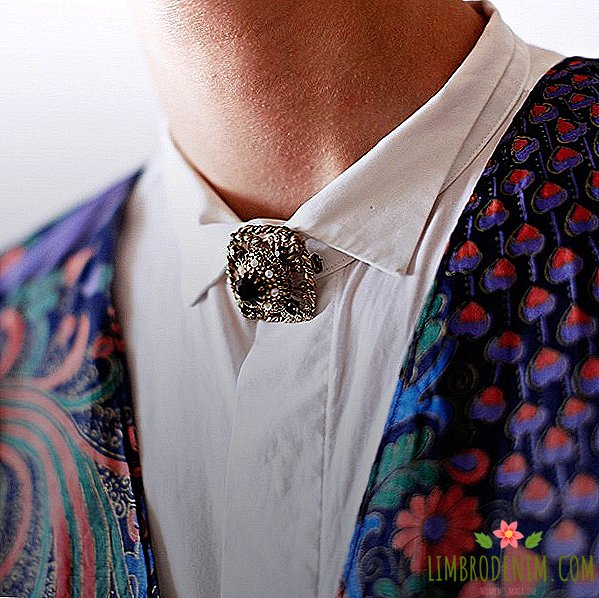Writer Katya Morozova about favorite books
IN BACKGROUND "BOOK SHELF" we ask journalists, writers, scholars, curators, and anyone else not about their literary preferences and publications, which occupy an important place in their bookcase. Today the writer and editor of the thick literary magazine "Rhino" Katya Morozova shares her stories about favorite books.

Reading from childhood was a disease. What else was there to do, lying with a sore throat in my bed, when my parents, it seemed, were sent to some remote parts of the apartment for this purpose and calmed down to immerse me in meditative reverie? I could avidly read the entire collected works of Dumas or "Don Quixote", "Lost Illusions" or "War and Peace", all then equally worried and made me have sore throat again and again, just to always lie like that, in the children's room with a view on a snowy highway.
We had a typical post-Soviet library with a set of basic classics. My childhood is a big room with full bookcases; like the Prusto Cork Room, which did not let it go beyond its limits, mine also had some kind of strength that attracted to itself, so for a very, very long time my main entertainment was reading. There was always a summer cottage in the summer, the village library was already destroyed, and almost ritual reading in my mother's garden. If this is all scrolling in my head, remembering, it turns out that I instilled a habit of reading to myself when I wanted to go outside my room, while remaining in it.
This childish manic passion for reading later developed into a research interest and writing; the word, literature became first the subject of study at the university, and then the main activity. After the first experiences of a painful encounter with a book, it became clear that this was not only an exciting story and bright colorful details that developed the imagination, but also a source of fear, pain, sadness, harsh truth about life. In adolescence, I rushed with Dostoevsky, and this, as time showed, did not become a passing love. If we use the popular statement of Nabokov that the reader is a re-reader, then for the first time I became a reader in the case of Dostoevsky's novels, which I reread again and again.

My relationship with reading has long been an ivory tower, beautiful, cozy, reminiscent of a children's room.

My main advisers in literature were the writers themselves or literary characters. Any library, in fact, is such a database with numerous links. You read Pushkin, and he will lead you, for example, to Apuleia; you read Dostoevsky - here both Balzac and Renan; and so on. That is, I - especially in the case of foreign literature, which for some reason did not receive any attention at all in my school - learned about other important books and writers, following the links found in the text of the books available to me. Understandably, all this could not give any idea about the latest or modern literature. My relationship with reading was for quite a long time an ivory tower, beautiful, cozy, resembling a children's room, from which you do not want to leave, but at some point you will not notice how you find yourself outside it forever.
I lived for a very long time on the principle of a character from Vagin's "Goat Song". "How are new books better than old ones? After all, they too will someday become old." Now my activity is connected with modern literature, and artistic prose is not only entertainment, a game with imagination or a way to exacerbate all feelings, it is sometimes a painful process of waking through other people's words and phrases and often not close to me and my own.
Probably, everyone has his own metatext in which you can stay as long as you like and enter it at any time. We quote him, for every case of life there is an example from there. For me, this text was Proust’s novel "In Search of Lost Time." It seems that I didn’t read it to the end for the first time, but then walked freely from volume to that, from Combre to Venice, from the living room of Verduren to the castle of Germans. I cannot even say that this is my favorite book, I just think that it is impossible to understand what the reading process is without contacting Proust.
It turned out to be a very difficult task to choose ten books from the library that has remained with the parents, which I have increased several times over the years. I would not call them the main books for me, perhaps this is a random choice of one day and the next one would be different.

"Antique novel"
This is a collection of ancient Greek and Roman texts, the first examples of a genre that many centuries later will be called a novel. My favorite has always been the Golden Donkey (Metamorphosis) of Apuleius. I read it no less willingly than Pushkin Onegin. A certain opposite, the antithesis of Apulean text depicting the world of the province of the Roman Empire, with witchcraft, debauchery and other pleasures and joys of life, in this collection for me was, I think, many well-known pastoral and super-sentimental love story - “Daphnis and Chloe” Long, special the charm of which I felt much later than the first acquaintance with this text.

"Giacomo Casanova's Love and Other Adventures"
A few years ago, a translation of one of the episodes of the life of Casanova, to which he dedicated a separate book, “The story of my escape from a Venetian prison, called Piombi,” was published. Interestingly, this is the first Russian-language publication translated into French reprint of the original text. Thanks to this text, I walked around the Doge’s Palace as a proud connoisseur of the location of all attics and hiding places. After The History of Escape, I already met the canonical text of the memoirs of Casanova, which later became one of my favorite Venetian books.

"Serapion Brothers"
Ernst Theodore Amadeus Hoffman
I think Hoffmann's fairy tales are loved by many since childhood. At the same time, Hoffman was never a children's writer, in my childhood it seemed that I was reading something very serious, an adult, “The everyday views of Kota Murr” or “Elixir of Satan”. "Serapion Brothers" read, exploring the literature on Venice (the action of one of the stories takes place there). This is a collection of stories that are read to each other by writers from a circle named for the hermit Serapion; romantic panegyric of imagination, fantasy and madness. Unlike, for example, the heroes of Hoffmann do not run from reality into the stories told, from the heroes of the Decameron, which is similar in composition, but, on the contrary, accomplish the transformation of reality by another act of creativity / story.

"Rhinoceros"
Eugene Ionesco
With this well-read book read from almost all the well-known series, I rushed during my student years. In Moscow, shortly before this, they put "Rhinoceros" Ionesco in the workshop of Peter Fomenko. There was even some special fashion for this play; however, the fashion for the love of the theater of the absurd and French existentialism among students of philological faculties is indestructible. And although in my case it is not love at all, “Rhino” still sneaked into my present. This is the name of a literary magazine that has recently been published in Moscow.

"From symbolists to obariuts. Poetry of Russian modernism"
This two-volume anthology was compiled under the editorship of my university supervisor Nikolai Alekseevich Bogomolov. Once a former textbook almost, now she always stands in the first row of the bookshelf so that it is always easy to reach. This is a complete picture of poetic trends and schools of the first decades of the twentieth century, with all the canonical examples necessary in these cases, but also with surprising rarities.

"Happy Moscow"
Andrey Platonov
Platonov is quite prominent in the selection made for this material. Other literature is close to me stylistically, but the language of Platonov is already something nadliteraturnoe, it is black earth, the insides of animals, muddy water, a bottomless lake. The mechanism of this language cannot be understood, this is for me a secret and therefore supersliterated. In this volume of his collected works are works of the 1930s and his most gloomy, airless novel, Happy Moscow, about finding a means against love and death.

"Goat Song"
Konstantin Vaginov
Vaginov for me was primarily a poet, I began to read his prose relatively late. And it coincided with the moment when I often went to St. Petersburg while I was writing a diploma. Now Vaginov's novels - especially "Goat Song" - are my favorite chapters in the multi-volume "Petersburg text". The photo is about a new edition of Vaginov's prose and poetry, my favorite late Soviet book with his novels was lost in Petersburg.

"Russian prose"
literary magazine
The third and, unfortunately, the last at the moment number of the remarkable literary magazine "Russian Prose" - the initiative of my friend, the St. Petersburg writer Stanislav Snytko and his colleagues Denis Larionov. I first heard about a magazine from a colleague long before I met the guys and started working on Rhino. This is one of the publications that, whether we like it or not, influenced our enterprise with Igor Gulin. The last issue is about a diary letter, with the most important examples of the genre, the Hollerbach diaries and - already modern - Alexander Markin. This is one of the best issues of the journal, about memory as a mechanism not only for preserving the past, but also for its loss.

"On the contrary"
Joris-Karl Huysmans
Mystic and Catholic Huysmans wrote an amazing book, reading which you can bring yourself almost to the attacks of faintness from the stuffy rooms with blue walls filled with pungent aromas of flowers, perfumes and dust of ancient folios. This novel is strongly associated with Oscar Wilde and his Dorian Gray - he admired Huysmans book. For one time, I was delighted with the literature of decadence and exotic flowers.

"Red and black"
stand
One of the favorite novels of early youth, not just returned to him in an attempt to understand the name. Later, having already become acquainted with literary interpretations, I chose to myself as the only possible interpretation a scene in a church whose windows are covered with red matter; Julien sees blood, and then comes upon her eyes an accidental prediction of her further fate - a head severed from the scaffold. By the way, while preparing this collection of books, again took up the "Red and Black."






